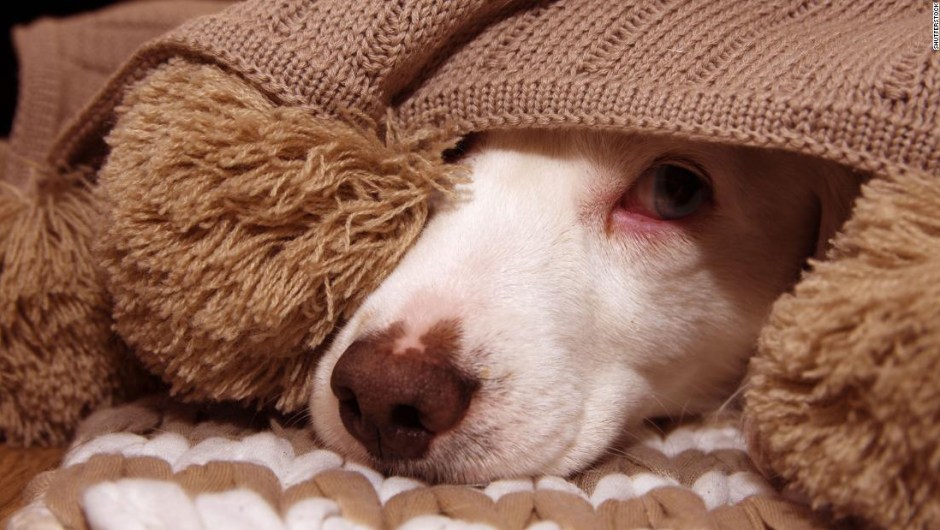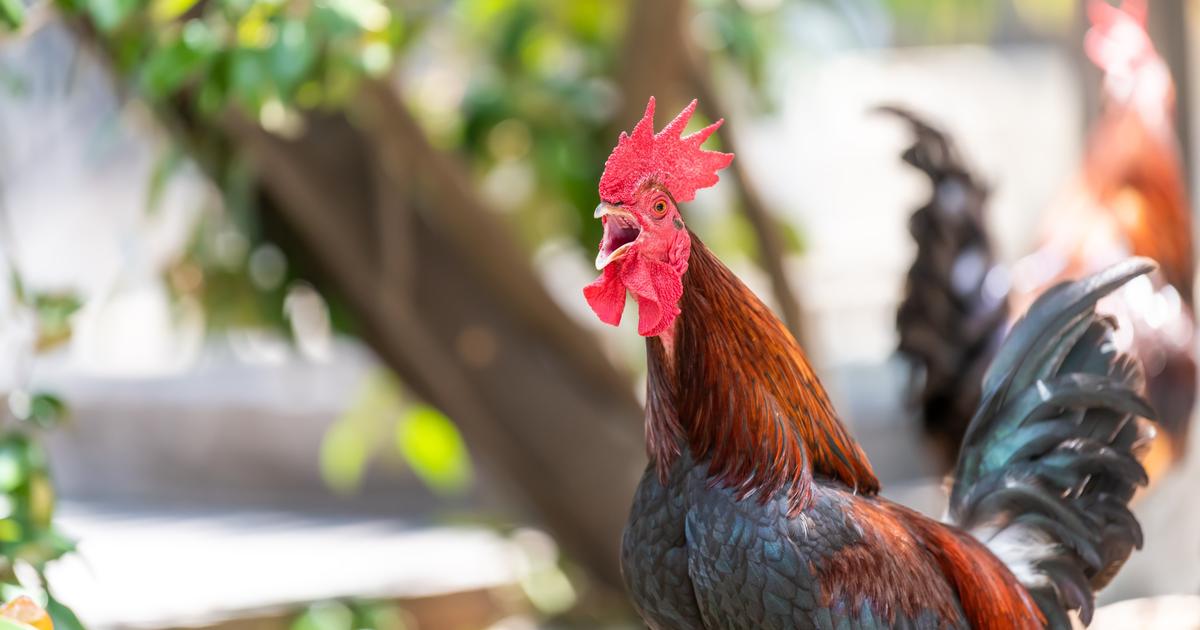At least 4 out of 10 dogs have a phobia of noise, such as fireworks.
And not only these pets suffer from these harmful events.
(CNN) -
Fireworks may look pretty and festive to us, but they explode like amplified shots into the extremely sensitive ears of many of our pets.
Fireworks, which reach between 150 and 175 decibels, are louder than many planes when taking off (about 140 decibels).
Decibels measure the intensity of a sound, while Hertz measure the frequency of a sound.
Human ears start to suffer damage at just 85 decibels.
However, we can only hear up to about 20,000 hertz, whereas dogs can hear between 45,000 and 65,000 hertz.
Just think of the physical and emotional damage that can be suffered by a dog that is left out to deal with noise.
advertising
Not to mention, when scared, dogs run away, and owners can lose their best friends overnight.
"Dogs have been known to dig under fences or jump over fences, break restraints or even smash windows in response to their fear of fireworks," according to Best Friends Animal Society, one of the oldest 'no-kill' agencies. from the country.
This leaves the dogs on the loose, possibly at risk of being hit by cars, picked up by strangers or even delivered to local animal shelters, which may still have limited hours due to the pandemic.
Pet owners may encounter obstacles in identifying and rescuing their pet.
Adoption of dogs and cats grew during the pandemic
Dogs and fireworks phobia
Statistics show that at least 40% of dogs have noise phobias, which can include fear of thunderstorms, leaf blowers, electric drills, and even hair dryers.
But those noises are relatively constant, experts say, while fireworks are sporadic and therefore unexpected.
"Many animals associate loud noises with danger," says Dr. Michelle Lugones, a veterinarian for the Best Friends Animal Society.
"From an evolutionary point of view, they are programmed to avoid perceived threats, so it is not surprising that fireworks are distressing to many animals."
Danger for all types of pets
It's not just the dogs.
Cats and many other domestic and wild animals have sensitive ears, provided by nature for finding and hunting prey.
"Cats are very likely to have as much fireworks phobia as dogs," says Lugones.
"But because cats tend to be more independent in the home and tend to run and hide during scary situations, their owners may not realize that they are suffering from fireworks."
Small domestic animals such as rabbits and rabbits are prey species and therefore easily stressed, Lugones notes, adding that 'unfortunately, rabbits can die of extreme fear, especially if they have a underlying disease.
They can also be injured trying to flee. '
Cows are social animals, Lugones adds, so loud noises could scare an entire herd, while horses are also species of prey that can easily be startled by fireworks.
"How reptiles and birds respond to fireworks may be less understood, but they also have stress responses, so precautions must be taken for them," he says.
How to prepare your pet for this type of event?
The key to helping your pet survive this terrifying sound attack is to be prepared, says Dr. Douglas Kratt, president of the American Veterinary Medical Association.
Plates and microchips
Make sure your pet has a tight-fitting collar with updated dog tags, says Kratt.
If your pet is microchipped, make sure the correct contact details are on file with the veterinary clinic or shelter that implanted the chip.
This way, if your pet runs away at night, you can call immediately and alert the vet or shelter about his absence.
Exercise before dark
A tired dog is a calmer dog.
A happy cat is a more relaxed cat, says Kratt.
Organize extra playtime for your cats, and take the dogs out to play and exercise long before dark.
These activities burn the extra energy, thus limiting anxiety later when it is time to sleep.
Bring all the pets inside
Do not leave your pet outside to suffer alone.
Put the dog's crate or bed in the quietest, most closed room possible, Kratt says.
"Keep windows and curtains closed to further muffle sounds, and take your time to see what works best for your dog, like lowering the lights or covering the crate with a blanket," he said.
Cats like to go high up to feel safe, so give them a cozy, covered den that's elevated off the ground, like an indoor cat tree hut or closet.
Distract your pet
Provide lots of new toys and long-lasting treats.
Food puzzles can also keep them distracted from annoying noises.
Use products to calm your pet
Many pets respond to "thunder" shirts or blankets that wrap them in a heavy, reassuring cocoon.
Cats and dogs often enjoy smelling species-specific pheromones.
Cats can wear collars with scents that mimic the pheromones that cats produce to calm their kittens.
Dogs respond to the scent of lactating females, appropriately called the "dog appeasing pheromone," or DAP.
Use calming sounds
First, muffle sounds by closing curtains and doors near your pet.
Soothing music or white noise, such as from fans or television — but not too loud — can be used to provide comfortable and familiar sounds.
Humans must be calm too
If you don't like fireworks either, try to stay calm around your pet anyway, says Kratt.
"Our pets can look at us to see how we react and be influenced by our behavior," he says.
"Try not to react too strongly to fireworks or the distress of your pets."
Use medication as a last resort
While there is nothing wrong with going to the vet for calming medications, experts are concerned that pet owners will rely on that first, without applying the behavior modification tips above.
But if you've tried all these ideas and your furry friend is still panicking, see your vet for advice.
Keep animals away from fireworks
If your pet isn't bothered by noise and you plan to light your own fireworks, be sure to keep it inside and secure.
Some dogs can "chase after shiny moving objects and risk getting burned or blinded in the process," says Best Friends Animal Society.
Also, many fireworks contain "toxic substances if swallowed," so be sure to keep fireworks in a safe place where your pet won't be able to find them.
When the fireworks end
The dangers to pets go beyond exploding fireworks, Kratt says.
"The 4th of July has other risks for our pets, such as the abundance of unhealthy and accessible food at parties, the dangerous summer heat, and dangerous debris on the ground after fireworks shows," says Kratt.
Before leaving your pet loose in the yard the next day, check that there are no debris or parts of fireworks that have exploded.
"Even if you haven't set off fireworks, the debris can find its way into your garden, where curious animals can pick it up to play or eat," says Kratt.
Used and unused fireworks are toxic to pets, Lugones says.
"Depending on the chemicals they contain, fireworks can cause serious gastrointestinal signs, such as vomiting, bloody diarrhea, abdominal pain and foreign body obstruction," he says. 'They can also cause acute kidney failure, shortness of breath and seizures. If you are concerned that your pet has ingested fireworks, contact a vet immediately.













